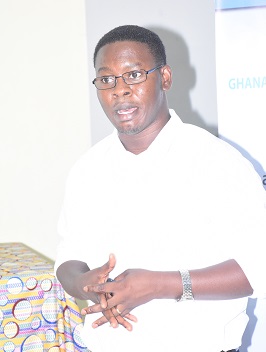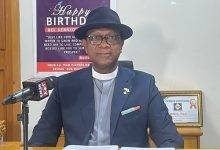
The hearing-impaired in the country are missing out on social services and business opportunities due to limited access to sign language interpreters, a research by the Ghana National Association of the Deaf (GNAD), has said.
It found out that many public institutions do not have in-house interpreters to assist them while professional interpreters are insufficient, expensive and difficult to reach due to the unavailability of proper database or formal structure that manages them.
The research has, therefore, recommended among many things, the recruitment, training and placement of sign language interpreters to public and private institutions to aid the hearing-impaired community.
Dubbed “Implementing sign language services in public institutions in Ghana: Current evidence, challenges and way forward”, the findings of the study were disseminated at an advocacy forum organised by the GNAD in Accra yesterday.
The forum was to enforce the Disability Act, 715 and the Convention on the Rights of Persons with Disabilities (UNCRPD), of which the study sought to outline challenges in their implementation, particularly the sign language component.
Funded by the Business Sector Advocacy Challenge (BUSAC) Fund, the study was conducted from May to July 2019, and sampled the views of key staff of public institutions in the Northern, Central and Eastern regions.
Dr Leonard Baatiema, a Public Health Researcher at the Noguchi Memorial Institute for Medical Research of the University of Ghana, in a presentation, said the study found out that public institutions were not engaging interpreters because of inadequate funds to pay them.
Another reason, he said, was the low attendance of hearing-impaired to public institutions, which rendered the interpreters redundant.
He, therefore, recommended the creation of a database of all sign language interpreters for easy accessibility, the use of Disability Fund to support sign language services and funding support by various assemblies.
Dr Baatiema called on the government to institute a sign language policy in the curricular of all schools (primary to tertiary), with extra training for family and friends of hearing-impaired persons to improve communication.
“Government should consider providing hearing aids for those who need them in school to improve their enrolment and retention in schools,” he said, adding that if these were done, the country would create a truly inclusive society.
The GNAD Executive Director, Juventus Duorinaah, said services of interpreters would facilitate better engagement and support for hearing-impaired and help to develop their own businesses in many ways.
Georgina Tagoe, a sign language interpreter, giving the Ghanaian Times an idea of their service cost, said they charge GH₵200 per hour, adding that the charge was negotiated if it exceeded the timeline or runs into days.
She said currently, the University of Cape Coast (UCC) and the University of Education, Winneba, were the only institutions in the country offering a two- year Diploma in Sign Language Interpretation, with UCC having churned out more than 50 professionals since it started last year.
BY JONATHAN DONKOR







